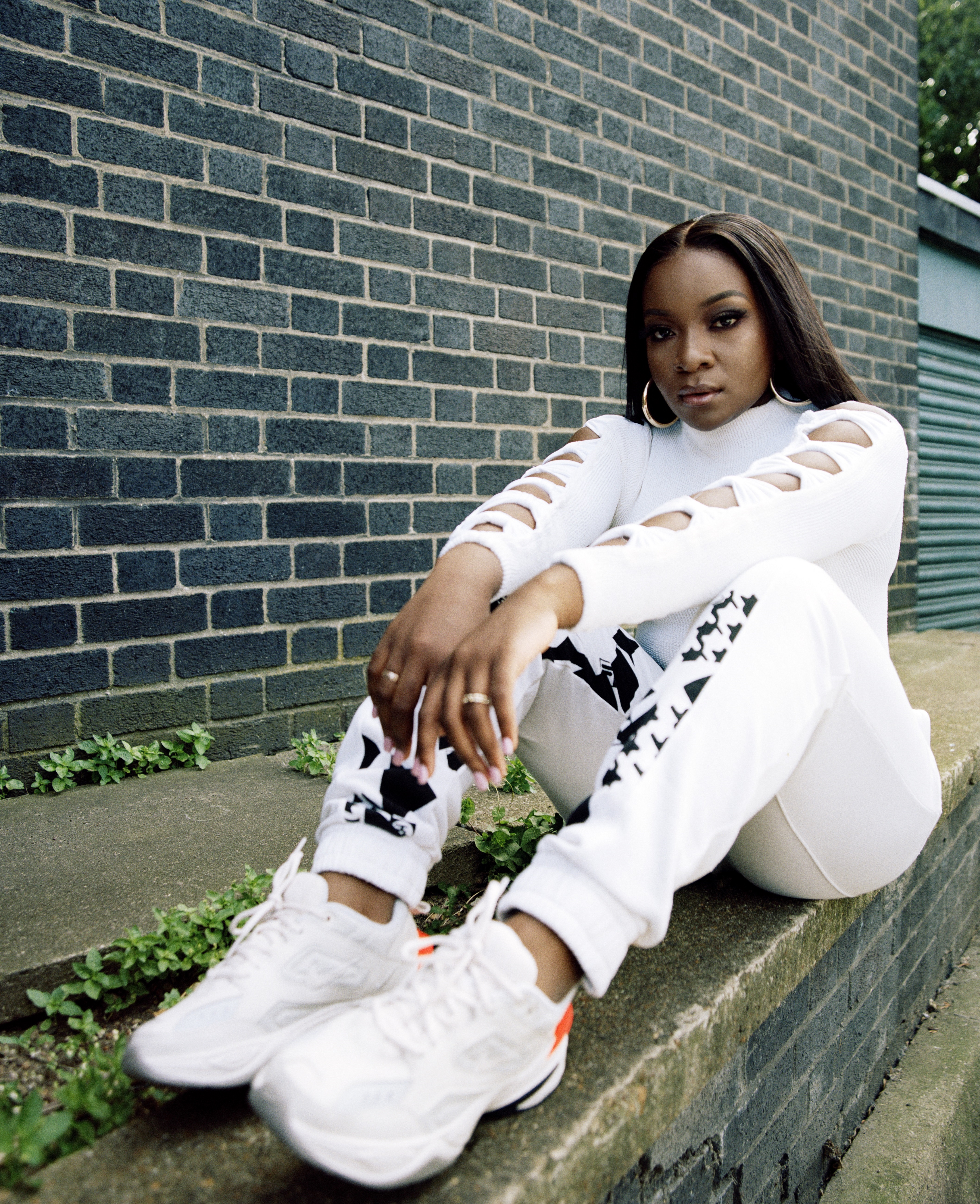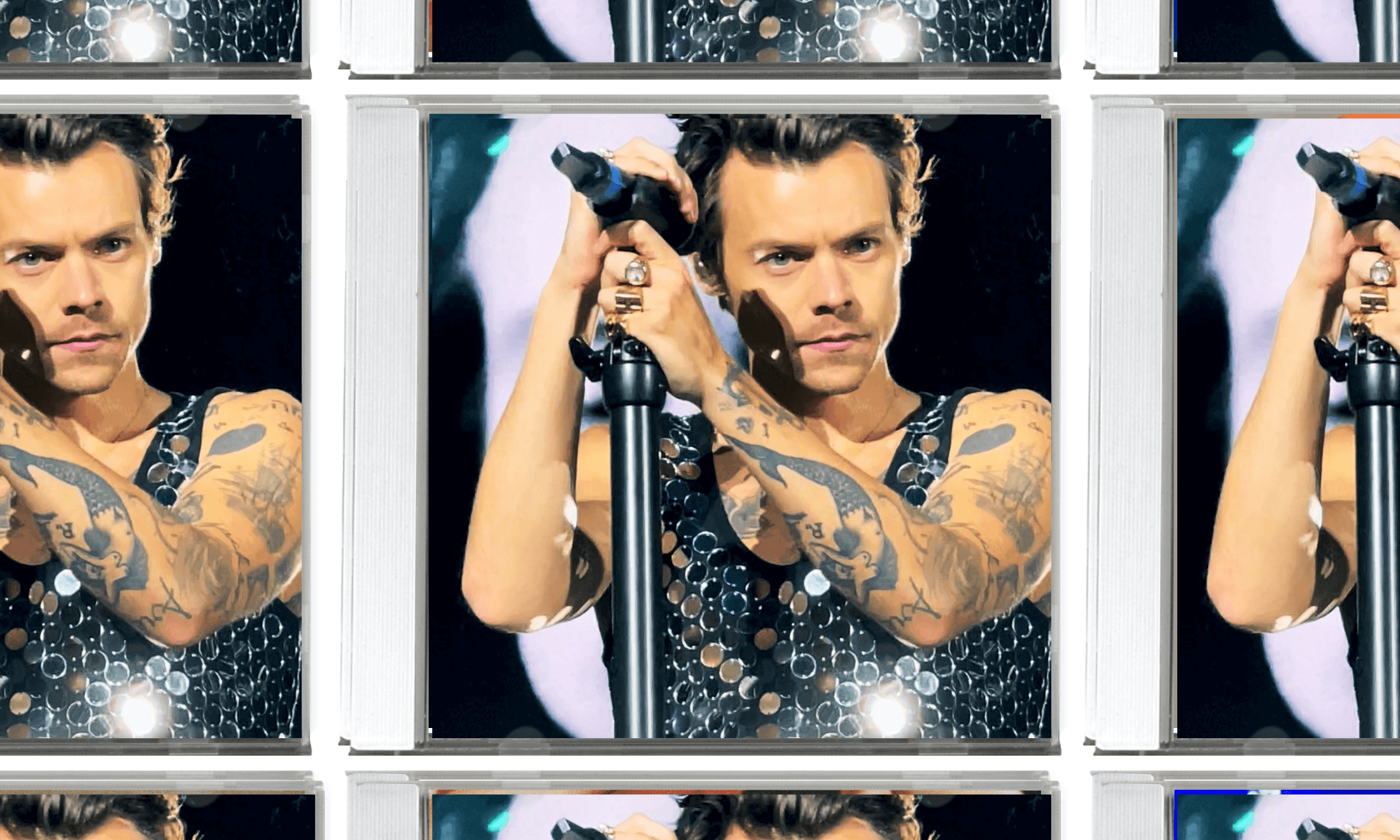
Ray BLK released her full-length project – Empress – last Friday. It comes 14 months after mini-album Durt which propelled her to well-deserved heights – including the cover of our second print issue. Like Durt, Empress doesn’t shy away from critical social commentary, which is probably why BLK is so often called a “conscious artist” (although she finds it an inaccurate description).
Empress is forthright, assured and assuring. BLK addresses issues of social justice (‘Run Run’); gives thanks to her mum for generously endowing her with unshakeable confidence (‘Mama’); and provokes a no-bullshit vibe through the overarching theme of female encouragement. The careful eight-track release is reflective of both her thoughtfulness and her pickiness, delivered with soulful vocals and short raps over hip-hop beats and homey R&B instrumentals. Following up on the singles ‘Run Run’ and ‘Empress’, today gal-dem can exclusively share the beautiful visuals for ‘Mama’, below.
I met her at a photo-shoot on her project’s release date to discuss Empress and what it has taken for her to come this far.
gal-dem: How has releasing Empress been different from releasing Durt?
Ray BLK: I’m just completely in a different space than I was then. I’m still new but then I was a fresh and brand new artist. Now people know my name so it’s just more eyes.
Did you set out to make a female empowerment album?
It kind of just unfolded. When I started making the project I didn’t know what kind of direction I was going to go in until I made ‘Empress’. That was the light-bulb moment.
There’s a line in ‘Empress’ that goes, “I need the best, not the runner-up”. Do you think that as women become less tolerant, finding “the best” is even more difficult?
I don’t think it’s harder, I just think you have to be pickier. When you’re ready to settle down you need to know the things you are not willing to compromise on first. That way you make better choices from the people who approach you because some of them will be an automatic no.
Do you expect black people and white people to take different things away from tracks like ‘Run Run’?
For me it’s not really a race thing, it’s more a class thing – I feel segregation in Britain is more class-based. So it was about showing people who don’t associate with, understand, or see people who are from underprivileged backgrounds, that this is the environment that children are living in. When you hear about a 14-year-old being stabbed or being caught carrying a knife you need to understand that a 14-year-old is a child. This is not some hooligan we’re talking about. I wanted to show that these are children, this is a real life situation and encourage people to have more empathy.
You’ve said you have taken your time with this release because you’re very picky and not big on rushing. Is that something you learnt the hard way?
No, I’ve always been that way. I follow my heart, but using logic at the same time. So for instance, when I decided to go to uni I was doing law – but I realised it didn’t make me happy at all. So I thought: ‘Okay cool – are you going to leave uni? What will you do if you leave uni? Are you going to chase this music thing? But you like nice stuff… you won’t have money to buy nice stuff’. So I worked on music whilst at uni, but changed to a subject that I liked and was useful for making music.
How did you find time to balance uni with working on your music?
Oh, I just wasn’t paying any attention in uni. Essentially, one thing had to not get my main attention and it was my dissertation. I did my dissertation in five days.
When you left your grad job to solely pursue music were you scared?
I was always very sure of myself – I think that’s something my mum has always put in me. She’s always like, ‘Huh, Beyoncé who? Soon people are going to be forgetting Beyoncé because of you!’ And that’s how she’s raised me, so I just trusted my talent. But like I said, I wasn’t just going to give up my job or my stable lifestyle to go into it. It was something I loved and I believed would work out if I continued to pursue it.
Are your Just A Kid school sessions basically you giving to young people what you feel your mum has given to you?
Definitely. Doing the Just A Kid school visits has been one of the proudest moments in my career because it was such an amazing opportunity to talk to kids who were like me in school, and didn’t even know you could have a career in music outside of making music yourself. I took music executives to show them that if you want to work in music you don’t have to be a star. I wanted to elevate them and tell them you can do anything. I actually remember the day that Tinie Tempah came to my school: I lost my mind. He was from Deptford I believe, where I’m from. Seeing someone who was just like me and managed to do this was so inspirational and reminded me that I could do anything. Having the opportunity to give that to other kids was really great.
I think people call you a conscious artist because you deal with political issues that most artists tend not to cover. Why do you think they avoid them?
I think it’s probably down to being afraid of judgment because not everyone can articulate themselves well. Some people know how they feel about certain topics but being able to articulate it in the ‘right way’ is difficult and we live in a world where everyone is always nitpicking. If someone says for instance, ‘dark skin girls need more love’, someone else will say, ‘does that mean light skin girls shouldn’t get love?’ and it’s like… that’s not what I said! So I think people are just worried about being misconstrued because these days everything is. So I don’t blame them.








